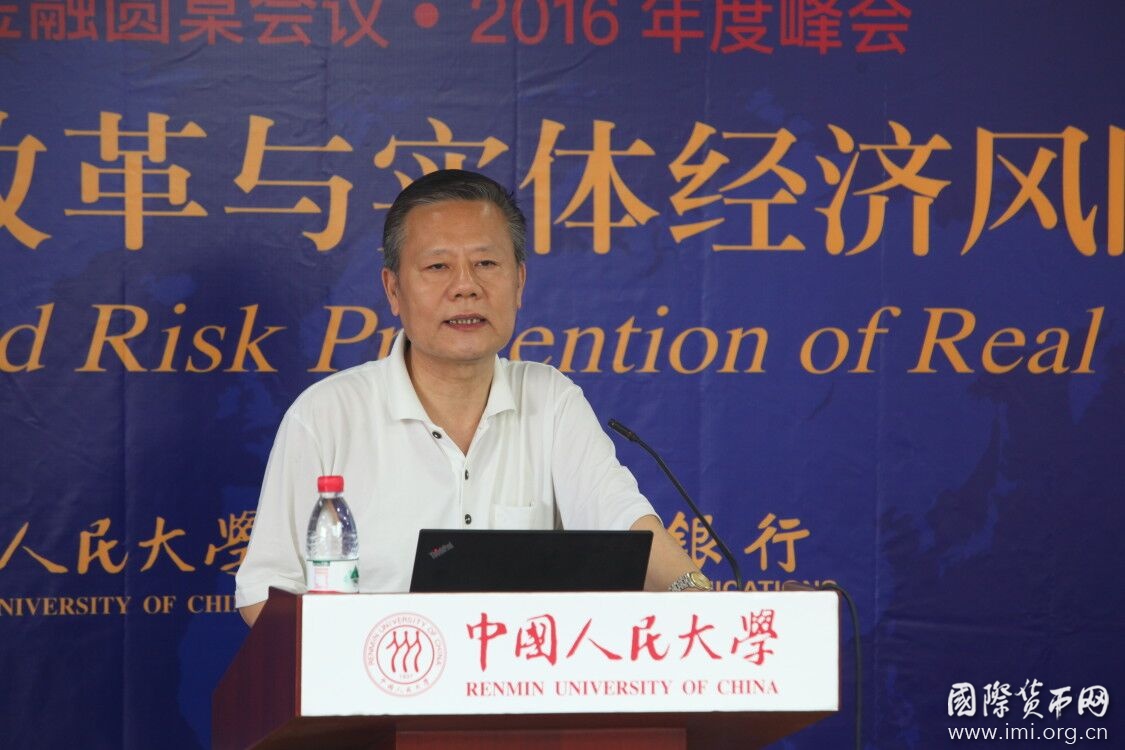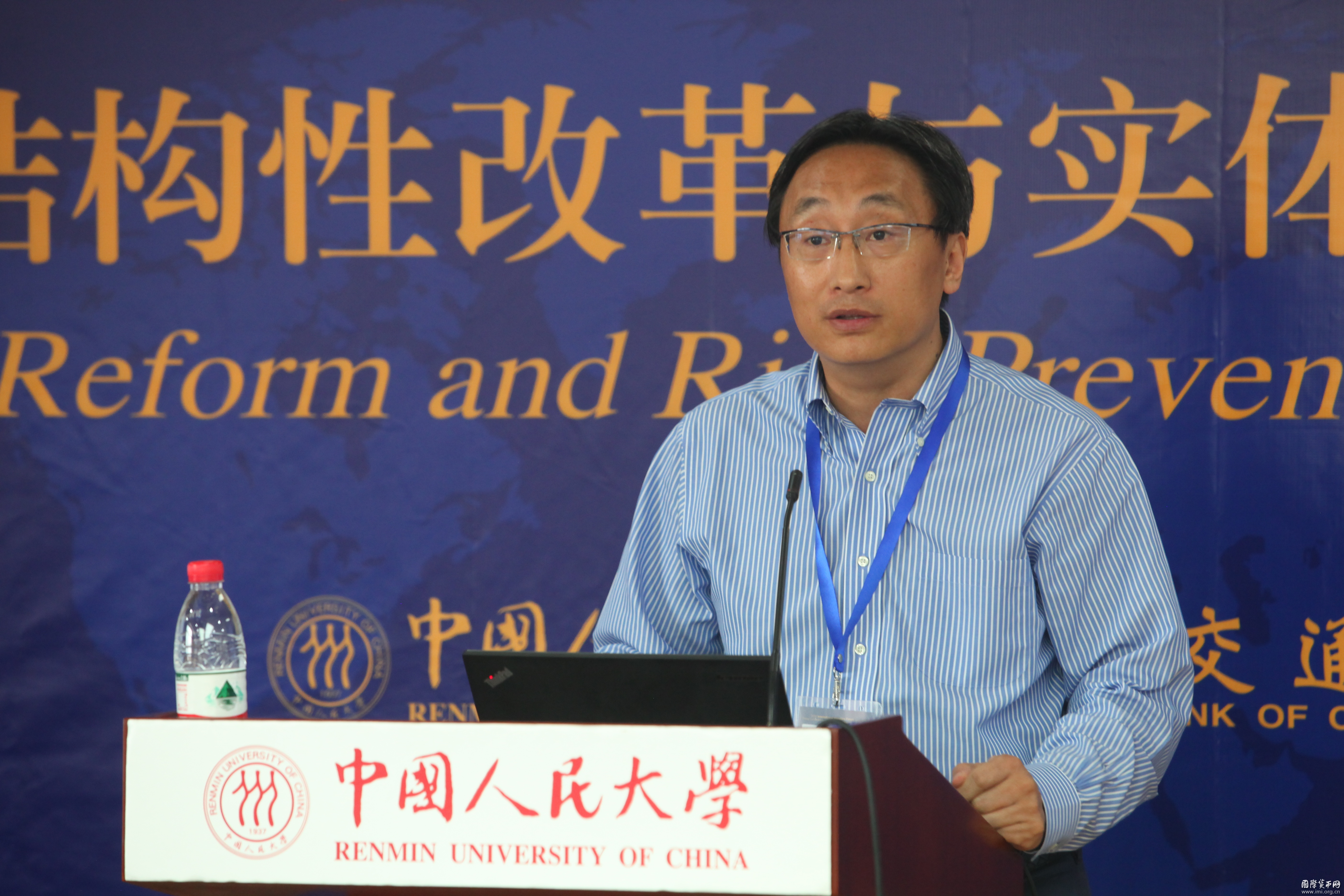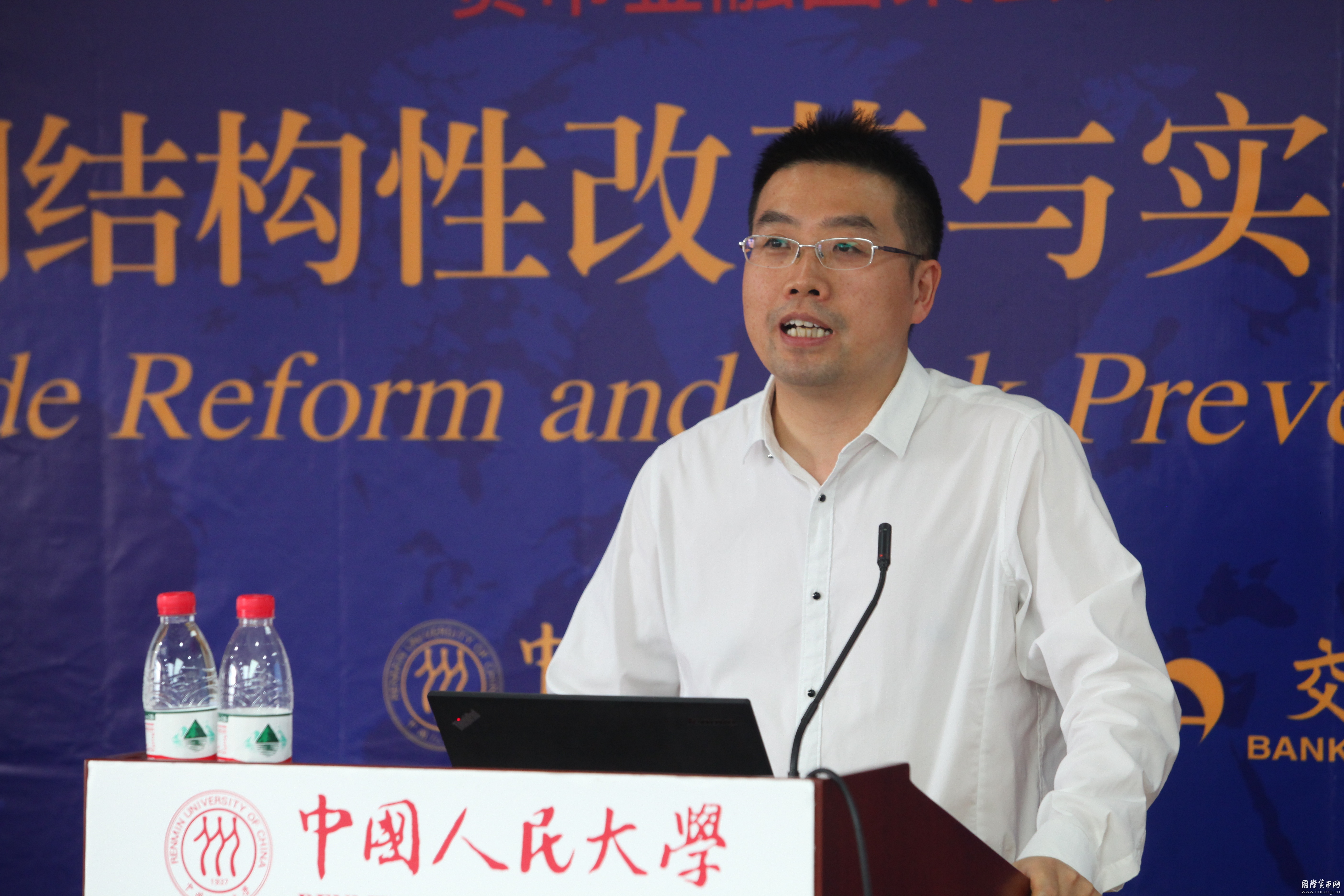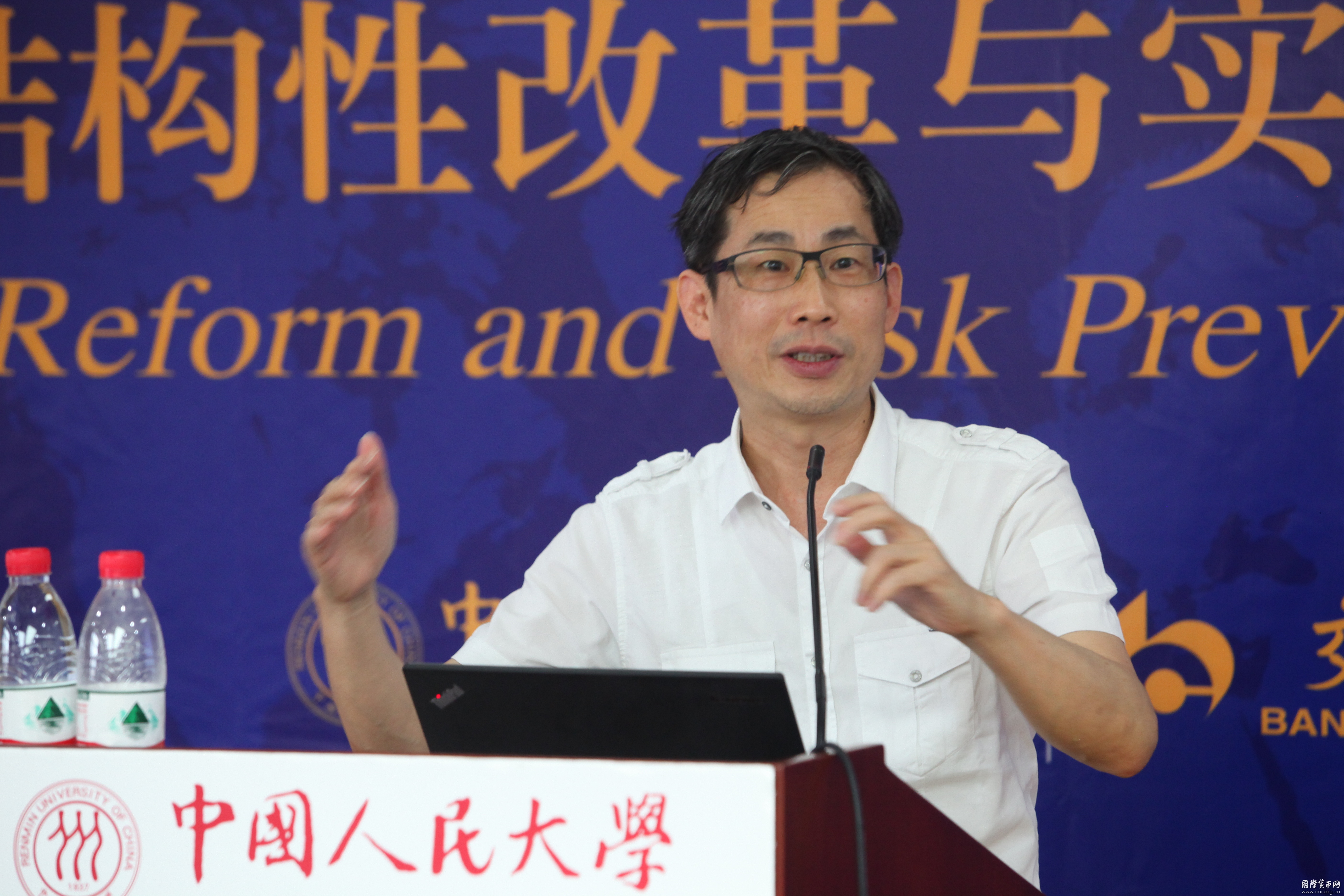2016 International Monetary Forum ·Parallel Forum III -“Supply side structural reform and real economy risk prevention”
2016-07-24 IMI
Director Pei Changhong delivering a keynote speech
President Jia Kang elaborated on his view on the supply-side structural reform in central documents. He noted that supply-side reform does not deny the meaning and role of demand; the main contradiction of the current production relations was on supply side. Supply-side reform is not a new planned economy. It allows the government to play a better role in the market trend, enhance economic growth momentum, and promote the overall level of China's social productivity. He believed that institutional supply-side reform was the leading issue of China's economic transition and would have an important impact on the process of internationalization of the RMB. The reform was a prerequisite for RMB’s full convertibility.
President Jia Kang delivering a keynote speech
Liu Jun said that as technological innovation shortened the product and service cycle, upgraded the shape and quantity of capital, developed differentiated needs and advanced total factor production, overcapacity has become a normal. In the process of capacity reduction, new economic forms such as the Internet economy and shared economy have actually reduced the level of GDP to some extent. He pointed out that the government should not meddle but give full play to the market so as to eliminate backward production capacity in competition and promote China's economic transformation and upgrading.
Liu Jun delivering a keynote speech
After the tea break, Huang Jinlao introduced China's consumer upgrades and the flourishing of consumer loans business in recent years using examples from people's daily life. He mentioned that the Internet consumer finance, a kind of inclusive finance, reduced the threshold of financial services, reducing the financing costs of SMEs and facilitating people's lives. By promoting each other, consumer loans and the Internet greatly improve the speed of China's consumer upgrades.
Huang Jinlao delivering a keynote speech
Michael Chang commented that the root cause for overcapacity and high leverage currently facing Chinese economy is the dual misplacement of resources—some of the financial resources were allocated to areas with relatively low efficiency; and some resources invested were of no help to people's lives. GDP was a tool to help measure the economic situation, not the ultimate goal of economic development; monetary policy is a short-term financial control means, not a long-term economic structural control tool. He focused on the use of internal and external, offensive and defensive strategies to adjust China's economic structure and promote RMB internationalization.
Michael Chang delivering a keynote speech
In the roundtable discussion session, Liu Jianjun, executive vice president of Bank of Communications’ Beijing Management Department, Zhang Yansheng, Secretary-General of the Academic Committee of the National Development and Reform Commission, Zhang Xiaopu, Deputy Director of the Macro Economy Bureau, Central Financial Leading Group Office, Director of Statistics Division of the Economic Analysis Department, People's Bank of China, Wang Wei, Head of the Fixed Income Research Department of BOCHK (Hong Kong), Zhou Daoxu, Chairman of Huarong International Trust Co., Ltd., Zhuang Yuemin, Vice President of Minjiang University, Zhang Xiaotao, Vice Dean of the School of International Economics and Trade, Central University of Finance and Economics Zhou Chunsheng, Professor of Finance, Cheung Kong Graduate School of Business and other senior managers from the financial regulatory departments, financial theory and industry experts and scholars shared their views on liquidity trap, deleveraging, overcapacity, financial reform and SME financing.
